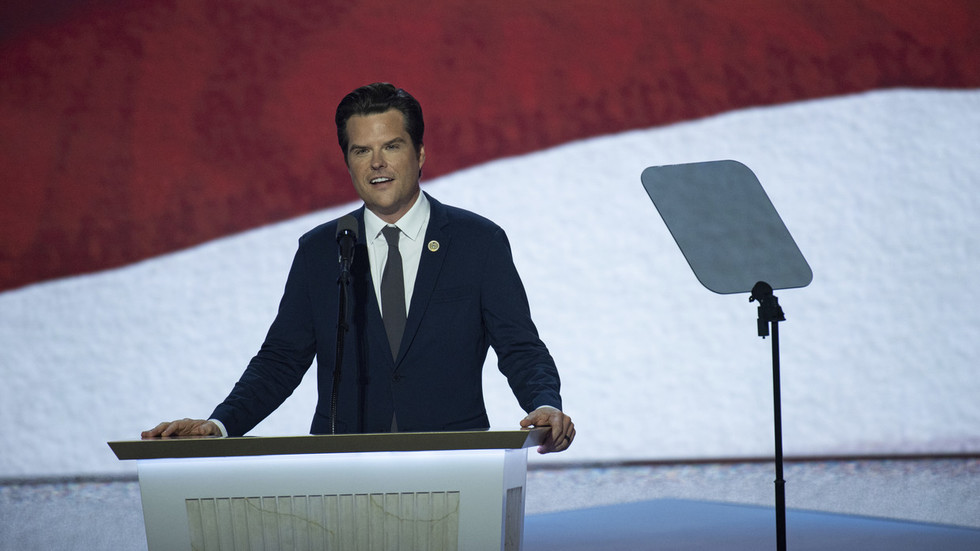In a recent development, Matt Gaetz has been nominated by President-elect Donald Trump to serve as the Attorney General of the United States. Gaetz, a Republican representative from Florida, has a history of expressing skepticism regarding the supply of military aid to Ukraine amidst its ongoing conflict with Russia. His vocal criticisms of U.S. support for Kiev have raised eyebrows within both political and public spheres. In a post made on his Truth Social platform, Trump emphasized the perceived “partisan Weaponization of our Justice System” as a priority to address, indicating that Gaetz’s role would be pivotal in this area. In response to his nomination, Gaetz expressed gratitude on social media, highlighting the significance of serving in such a critical position.
The selection of Matt Gaetz for this influential role is likely to ignite a heated confirmation process in the Senate. Several senators have publicly voiced their astonishment at Trump’s choice, considering Gaetz’s contentious past, especially regarding allegations of sex crimes previously investigated by the justice department—though he was never charged. As Attorney General, Gaetz would oversee a department that scrutinized him, adding layers of complexity to his appointment. His confirmation hearings are anticipated to spotlight not only his past actions and statements but also the broader implications of his views on justice and law enforcement in America.
In February 2024, Gaetz, along with a cohort of conservative legislators, expressed deep reservations about military aid to Ukraine. They contended that continued U.S. support merely extends the ongoing conflict without yielding a clear resolution. Gaetz particularly characterized the aid packages as financial resources circulating through what he referred to as “money-laundering capitals of the world.” This critique represents a significant pivot in Republican foreign policy discourse, drawing attention to a growing faction within the party that is questioning established support for Ukraine in light of the ongoing war with Russia.
Gaetz’s skepticism regarding U.S. military assistance to Ukraine was underscored during a critical moment in 2022. When Ukrainian President Volodymyr Zelensky addressed Congress seeking further support, Gaetz’s decision to remain seated while many of his peers stood in solidarity with Zelensky was noted and criticized. This action drew attention to the rift within the party regarding foreign aid policy and underscored Gaetz’s personal stance that aligns with a more isolationist and fiscally conservative approach. His behavior during that address encapsulated his broader criticism of foreign engagements and military spending.
Notably, Trump has also made other key nominations as part of his incoming administration, including Florida Senator Marco Rubio for the position of Secretary of State and former Congresswoman Tulsi Gabbard as the next Director of National Intelligence. These selections reflect a strategic framework within Trump’s team that suggests a desire for a government that reflects Trump’s views on foreign policy, particularly emphasizing skepticism of traditional military engagement and complex international alliances. Gaetz’s appointment as Attorney General could signal a significant shift in how the Justice Department will approach issues related to national security and foreign assistance, especially when it comes to Ukraine.
The implications of Gaetz’s potential ascension to the role of Attorney General extend beyond just his controversial views on military aid. Should he be confirmed, it may lead to changes in how justice is administered in cases that intersect with political discourse and governmental accountability. This could foster an environment that reshapes the relationship between the legal system, foreign policy, and issues of national security. As Gaetz prepares for confirmation hearings, both his supporters and critics will be closely examining how his historical positions may influence the Justice Department’s future directives and the degree to which partisan beliefs might dictate policy-making under his tenure.

